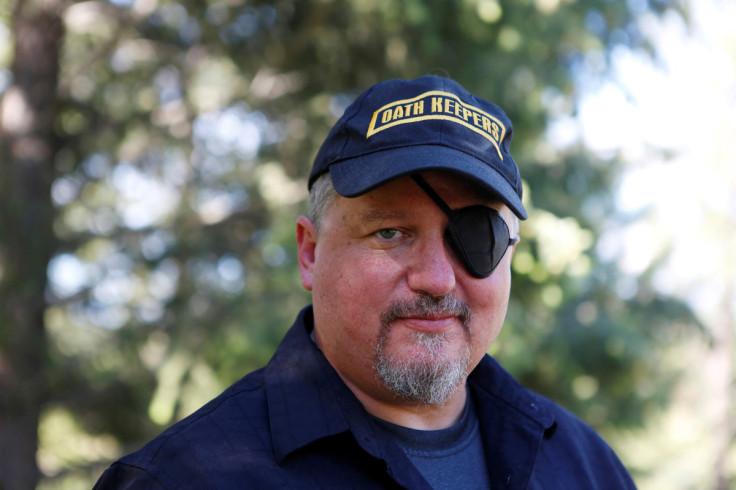Oath Keepers Founder Goes On Trial Over U.S. Capitol Riots

U.S. prosecutors will present their opening statements on Monday in the trial of Oath Keepers founder Stewart Rhodes and four others charged with conspiring to use force to stop the peaceful transfer of presidential power on Jan. 6, 2021.
Rhodes and his co-defendants Kelly Meggs, Thomas Caldwell, Jessica Watkins and Kenneth Harrelson are accused of plotting to forcefully prevent Congress from certifying Democratic President Joe Biden's 2020 election victory, in a failed bid to keep then-President Donald Trump, a Republican, in power.
Trump supporters stormed the U.S. Capitol in a failed attempt to overturn his election loss to Biden after Trump falsely claimed the election had been stolen from him through widespread fraud. Five people died during and shortly after the riot, and about 140 police were injured.
The five on trial face numerous felony charges, including seditious conspiracy - a Civil War-era statute that is rarely prosecuted and carries a statutory maximum sentence of 20 years in prison.
Opening statements by prosecutors and the defense are expected to last for several hours.
Prosecutors have said the five defendants trained and planned for Jan. 6 and stockpiled weapons at a northern Virginia hotel outside the capital for a so-called "quick reaction force" that would be ready if called upon to transport arms into Washington.
As lawmakers met on Jan. 6 to certify Biden's election victory, some Oath Keepers rushed into the Capitol building, clad in paramilitary gear. They are not accused of carrying firearms onto Capitol grounds.
The trial, which could last for six weeks or more, is expected to feature emotionally charged videos from the day of the attack, as well as text and audio voice messages exchanged between the group's members.
The government has characterized the Oath Keepers as a far-right anti-government group, some of whose members have ties to militias. Some of the members, who include current and former military and law enforcement personnel, believe the federal government "has been co-opted by a cabal of elites trying to strip American citizens of their rights," the indictment alleges.
Rhodes, a Yale-educated attorney and former U.S. Army paratrooper, has disputed that characterization, saying it's a non-partisan group whose members have pledged to defend the U.S. Constitution.
The trial is expected to feature testimony from as many as 11 FBI agents and possibly at least one informant. A full witness list has not been publicly released.
Although Trump's shadow will loom large over the trial, he is not expected to be a central figure in the case.
U.S. District Judge Amit Mehta, who is presiding over the trial, previously restricted the defendants from using a "public authority" defense, meaning they cannot claim they stormed the Capitol at Trump's direction.
However, attorneys for some of the defendants are expected to argue that their clients believed they could be called to action if Trump invoked the Insurrection Act, a law that empowers the president to deploy troops to suppress civil disorder.
© Copyright Thomson Reuters {{Year}}. All rights reserved.





















